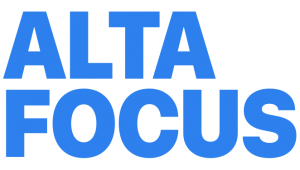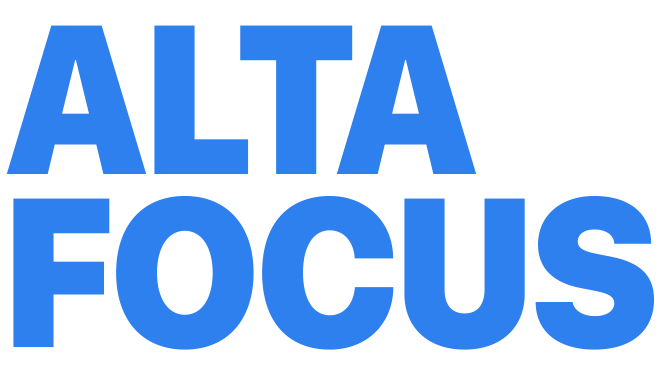October 14, 2020 9 min read
The coronavirus wrought havoc on the East and West coasts before it found its way to more interior parts of the country. But before long, swaths of more rural and Midwestern America were battling outbreaks and were desperate not to fall behind on testing and tracing.
At the same time, a barely year-old healthcare-solutions startup out of Orem, Utah called Nomi Health was leveraging its engineering tech to streamline administrative processes between employees/patients and providers. But it became clear pretty quickly to both Utah state leadership and Nomi upper management that their fates would be intertwined.

Nomi Health co-founders Mark Newman (l) and Joshua Walker
Image credit: Nomi Health
Before long, Nomi was formally contracted by Utah to, per its website’s own FAQs, ensure “that every step of the testing process functions seamlessly — from tents to tests to tech.” Soon, Nebraska and Iowa followed suit, and virtually overnight, Nomi was juggling its original raison d’être with an urgent mandate to coordinate efforts that could save thousands of lives and help prevent further spread of a global public-health crisis.
On a recent afternoon, just over a week before President Trump himself contracted the virus, co-founder and CEO Mark Newman and co-founder and COO Joshua Walker phoned in from Utah to explain how their state government came calling, whether they ever panicked about their mission and purpose and how close they think we are to a functioning vaccine that will be distributed far and wide.
Related: How to Pivot Your Product to Fight Covid-19
So firstly, the chicken-or-egg question: Did you guys approach state leadership suggesting your company could help the Covid-testing effort, or did they come to you?
Mark Newman: Utah County has 30 percent of the [state] population, but at that point had less than 1 percent of the testing. This was in mid-March. Because all the major healthcare systems were based in Salt Lake County. Unfortunately, there’s always healthcare deserts. And if you talk to the health department, they didn’t think there was Covid in the county, even though it’s a commuter country. The second phase was when the announcements were coming out about testing centers in grocery-store parking lots. Well, a whole bunch of retailers said they didn’t want a bunch of sick people walking into their stores.
And second, our office overlooked a big grocery store here, and the parking lot was jammed full of people trying to stock their shelves before everything shut down. Naturally, because of our business model, we’re like: What it really is is that the providers don’t have a business model for it, and the supposed payers — the insurance companies — don’t want to pay for it. So that’s the first problem. The second part was that they said, “We can’t go and buy the stuff.” That’s because most people just went and bought stuff from the same old suppliers. We called a diagnostic company here in Utah who was doing Covid testing in Europe. And where everyone was saying no tests, they had two million of them. And we’re like, “This is silly. Why don’t you use them in your own state?” And they’re like, “No one’s called.” Wow. OK. Well, we’re calling. Put us down for 50,000 and let’s get going.
The third part of it was our backgrounds were building high-volume assessment processes. We knew it wasn’t just about being great diagnostic testers; it was actually about throughput and flow. No one thought we could do it, frankly. Within a couple of weeks, we launched everything, and then we talked with the governor’s office and they said, “Can you keep doing this?” This is really a story of raising our hand, showing up and saying, “Yeah, we can do this.”
Is it worrisome that it was ultimately up to the private sector to blaze the trail here?
Joshua Walker: State governments and federal governments aren’t necessarily designed to be nimble and quick. That’s the nature of their model, for longterm stability. And we found in our region, it’s actually the powerful combination of the private sector and the public sector coming together to bring their unique skillset that allowed for quick and nimble movement, where we as a private organization on the commercial side of the market could mobilize very quickly. We could spin up things. We could design things. Our contractual frameworks are set up to be able to move very quickly, where their models of state governance were just not set up to be that in this time.
Some aspects of your model lent themselves to this transition, but others probably not so much. How did you compensate for that?
Walker: It really comes down to a couple of things. One being, approaching the problem space with a brand new perspective. What allowed us to be so quick is that we were uninjured and encumbered by the traditional approach to how one might apply what had already been existing in the market to address this. We brought together a team with a wide range of skillsets from lots of different industries, so then it was really just about execution. We pulled together an end-to-end testing solution for a state in a handful of weeks. A robust solution doesn’t come without being highly aligned internally around where time and energy and resources are spent.
I’m going to guess that with the contracts you’ve gotten from these states, you probably hit some of your revenue milestones quicker than you had anticipated. If so, how do you know where to move the goalposts to next and how to allocate your resources?
Walker: One thing that I that has been powerful is we didn’t just deploy our original solution for the state of Utah and say, “Hey, there you go. Good luck. Hope it works well for you.” We’ve stayed as a partner with the states and our customers around the shifting landscape. In March, as Mark mentioned, we had grocery stores shutting down and people were being asked to stay at home. That was one environment. You had super-scarce resources when it came to PPE and nasal swabs and tests and machinery. Now there are more tests available, but it’s about throughput and speed of response. It’s how you get schools back going. How do you get people back to work?
Newman: We’re going to be dead-set focused on constantly moving and reducing people’s healthcare costs broadly. We are going to serve self-funded organizations so employers, states and communities will have our direct-healthcare claim-payment platform that replaces large insurance carriers. We’re going to continue to have Nomi public-health services be a portion of our business because it’s a case study of what we’re doing right. So it’s definitely adjusted our targets. If you would have asked us at the beginning of 2020 [if we would] be doing a couple of percentage points of all Covid testing in America, across multiple States, we would have been like: First, what’s Covid? And second, you know, probably not.
Related: Do You Have Covid-19? New Apple Site, iOS App Help Assess Symptoms
I get that it feels like there’s no limit to the potential of Nomi’s model, but is there a realistic max capacity for how much more testing you can take on?
Newman: We’re very deliberate around how we bring on our projects. There are certain pieces that scale better than others. Digital platform scales really well, hiring people a bit slower. We won’t take on things we won’t deliver on. The nice part about this phase of the pandemic, if there is such a thing, is that we’ve all recognized it’s not a sprint — it’s a fast-running marathon. We can be really deliberate around planning and strategy with our customers to take on new ones and new programs, as well as support the ones we have.
This has all been a kind of stress test. Has it at least quickly brought to light parts of your workflow that were going to prove inefficient eventually?
Walker: How little sleep you can get and still function. [Laughs] I have a 5-month-old, so how little energy Josh can function on. We would never have experienced this in our lives unless we went through the last six months.
Newman: We both have young kids and spouses of ours who were able to support us while Mark and I were heads-down trying to drive this solution and help our state and states across the nation.
Walker: The other part is we both built companies before. The strategic planning process for our programs were: Deliver day in and day out, always put points on the board, always make sure, we over-delivered to make sure our customers were served the best way they possibly could be.
Newman: Any mountain that gets put in front of you, you sprint over it. You just punch through it.
The big question: Does your accomplishment underscore the fact that, with widespread coordination, we can possibly get a vaccine distributed across the nation without too many obstacles?
Newman: Definitely. There are so many parallel dynamics.
Walker: I feel like there is hope. There’s going to be a lot of creativity, and I believe there’s a healthy intolerance of the status quo as it relates to mobilizing and moving on immunization and vaccination rollouts, so I’m optimistic.






